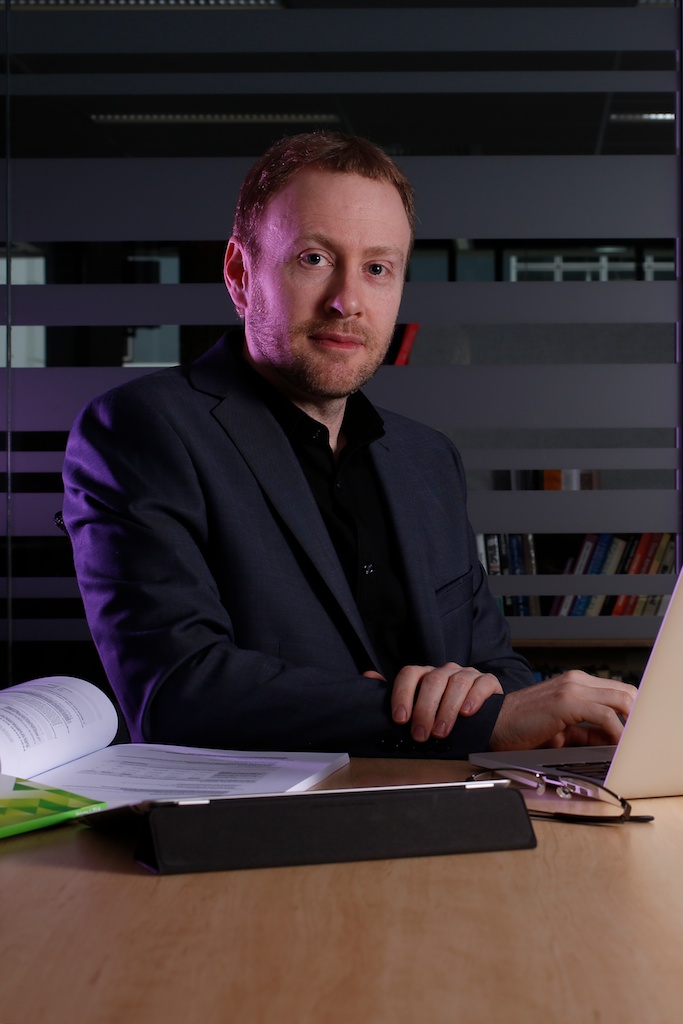
An award-winning course designed by UNSW’s Simon McIntyre is helping nations adjust to digital teaching during COVID-19.
UNSW will waive the certificate fee for teachers in the Philippines who enrol in the Learning to Teach Online (LTTO) course as a knowledge exchange initiative to advance digital learning.
“To help a country improve its education in the situation that we're facing now is a real honour,” says Associate Professor Simon McIntyre, Associate Dean Education at UNSW Art & Design.
With help from his UNSW colleagues, A/Prof McIntyre established LTTO as a series of 20 separate video resources in 2012 before developing them into a fully online course with Coursera in 2014.
The LTTO course is available free to anyone in the world with an internet connection and a computer but the certificate itself usually costs nearly $100AUD ($60USD).

After Raphael Pangalangan from volunteer organisation Just One Little Thing in the Philippines reached out to UNSW, the university and online platform provider Coursera waived their 50/50 share of the certificate fee, A/Prof McIntyre says.
About 300 of JOLT’s students who complete the course will receive the certificate, A/Prof McIntyre says.
“JOLT is a volunteer network that pulls together training for teachers to help raise the quality of education in the Philippines which is an amazing thing to do,” he says. “And Raphael has just got that genuine passion.”
Mr Pangalangan, who is also a human rights lawyer, says the UNSW certificate gives parents and students in the Philippines the confidence to entrust their children to volunteer teachers knowing their accreditations have been validated.
He says the next step for JOLT would be to fundraise for Technology Support Packages to close the tech gap that exists for students, focusing initially on schools in Marikina city in Metro Manila.
“The Philippines is a developing country,” Mr Pangalangan says. “We have been grappling with poverty and corruption for most of our modern history. So, one of the challenges in the transition to online teaching is ensuring that students have the technological means to access the e-material in the first place.”
A/Prof McIntyre says he and colleagues, Dr Negin Mirriahi and senior lecturer Karin Watson put together this course to “democratise knowledge”.
“For us, the idea of creating a tool or a way for educators to share this knowledge with everyone else was the most important thing.
“It's never been about trying to sell something. It really has been aimed at helping teachers understand how to teach better online. So ultimately it can improve the educational opportunities for their students, and hopefully make a difference in their lives.”
A/Prof McIntyre says one of the most common obstacles educators face in the transition to the digital classroom is understanding how their teaching relates to different pieces of technology.
“So, it’s about knowing which technology is the best choice for doing a particular activity and how to engage students online,” he says.
The other issue, A/Prof McIntyre says, is that people use time differently online, so teachers need to change the way they teach.
“You can't ‘walk into a classroom’ online like you can face to face and deliver a four-hour class in one hit because often people learn more effectively online in smaller focused blocks of time spread over the week,” he says.
“So rather than the ‘stand and deliver’ sort of model. It's more about understanding how to create an active online learning community that empowers students to explore, learn, draw on all that internet connectivity has to offer, and share knowledge with peers in a well organised and moderated environment.”

Mr Pangalangan says JOLT was established to inspire big change through small steps.
“It is often said that ‘The Philippines is worth dying for’,” he says. “I agree completely. Yet at the same time the old adage distracts us from our own key capabilities.”
“It overemphasises the extreme measure, when in truth, even little things we can do day in and day out may make a felt difference for the individual and the society at large.
“That is JOLT’s message. That, together, we can make a big difference through Just One Little Thing.”
The LTTO course has won a myriad of awards, including the 2017 Coursera Outstanding Educator Award, the 2012 Merlot Award (US), and was included in US President Obama’s 2015 ConnectEd program for continuing education accreditation.
